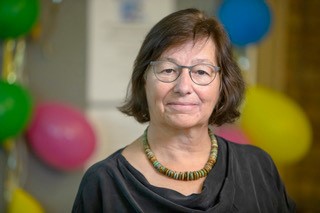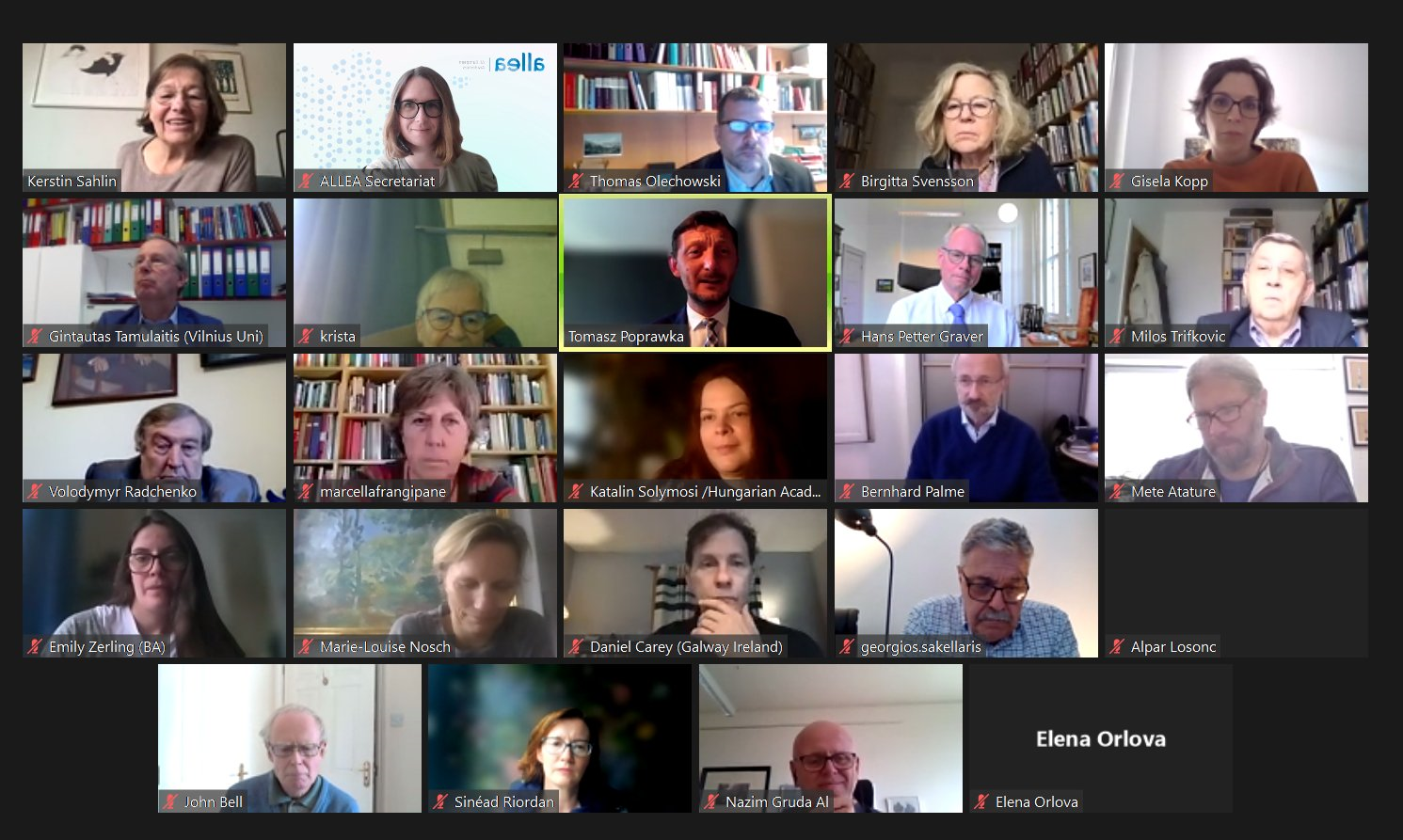Towards a New European Research Area — Interview with Kerstin Sahlin

Kerstin Sahlin (Royal Swedish Academy of Science) is the Chair of the new ALLEA Working Group on the European Research Area. Picture credit: Umeå University/Mattias Pettersson
Professor Kerstin Sahlin (Royal Swedish Academy of Sciences) is Professor of Public Management in the Department of Business Studies at Uppsala University. She is also the Chair of the new ALLEA Working Group on the European Research Area, which held its first meeting on 7 October. The group will contribute to the further development of the ERA, its political framework, implementation and monitoring. In this interview, she provides us with an overview on the key issues at stake for the future of ERA.
Question: You are the chair of ALLEA’s new working group on the European Research Area. Could you tell us a bit about the objectives of this project?
Kerstin Sahlin: The group will address strategic issues of importance to accomplish the ERA such as free circulation, research inequalities and widening participation, young researchers, academic freedom, and global approaches to R&I. The programme of action will include engaging with the European Institutions, particularly the European Commission, on the development of the ERA, its implementation, monitoring and evaluation. The group will also continue to contribute to the monitoring and shaping of EU research and innovation framework programmes.
“The programme of action will include engaging with the European Institutions, particularly the European Commission, on the development of the ERA, its implementation, monitoring and evaluation.”
Q.: The European Research Area (ERA) was created in the 2000s as a mechanism to address the fragmentation of the EU’s research and innovation systems. After more than 20 years in development, could you mention one key achievement of this project and one relevant pending issue ahead of us?
K.S.: The European Research Area (ERA) is the ambition to create a single, borderless market for research, innovation and technology across the EU. In 2018, the European Commission initiated a process to revitalise the ERA and in 2020 launched what is called the new ERA. This new ERA seeks to strengthen mobility of researchers and the flow of knowledge, incentivise investing in research and innovation, promote gender equality and diversity in science, and enhance cooperation among universities, business and other research and innovation actors.
Q.: After the recent Communication of the European Commission on the future of ERA and the new EU Pact for Research and Innovation, the new ERA is taking off. In your opinion, is the ambition and the framing of priorities of this policy initiative moving towards the right direction?
K.S.: In general, we are very positive to the ambitions of strengthening the European Research Area. The new ERA – and the EU pact for Research and Innovation that was formulated as an agenda for the new ERA – includes a long list of topics. It is still a very open and complex process. The programme of action will include engaging with the European Institutions, particularly the European Commission, on the development of the ERA, its implementation, monitoring and evaluation.
“We want to see a new ERA that facilitates cooperation, improves framework conditions for science and research across Europe, facilitates good research practice (…)”
Q.: In which areas can European academies work together to contribute the most to the future of the new ERA?
K.S.: We want to see a new ERA that facilitates cooperation, improves framework conditions for science and research across Europe, facilitates good research practice, defends academic freedom and trustworthy science, strengthens diversity and inclusivity, and helps us think and act globally. An ERA, in other words, that forms along the strategic priorities of ALLEA.

Members of the new ALLEA Working Group on the European Research Area in their first meeting on 7 October, 2021. The breadth of expertise and geographical representation of the group’s membership reflects the heterogeneity of the ERA itself.
Q.: An often-antagonising debate among scientists is the role citizens and policymakers should play in defining their research agendas. How do you think this question should be addressed?
K.S.: I think most researchers welcome an openness to citizens and policymakers. Of course, this should not be set up in such a way that the independence, freedom and trustworthiness of science and research is compromised.
Q.: You are Professor of Public Management at Uppsala University. Could you tell us about your main research interests?
K.S.: I have studied various aspects of organizing and governing public sector organizations. My interest has mainly concerned organizational reforms, the global expansion and circulation of management ideas and developments of global standards and regulations. I am also interested in public – private relations and in the social responsibility of corporations. More recently I have largely focused my research interest on the governing and organizing of higher education and research.
Q.: What is the latest project you have been working on?
K.S.: I currently conduct an international comparative study on collegiality in the governance and organizing of higher education and research.



